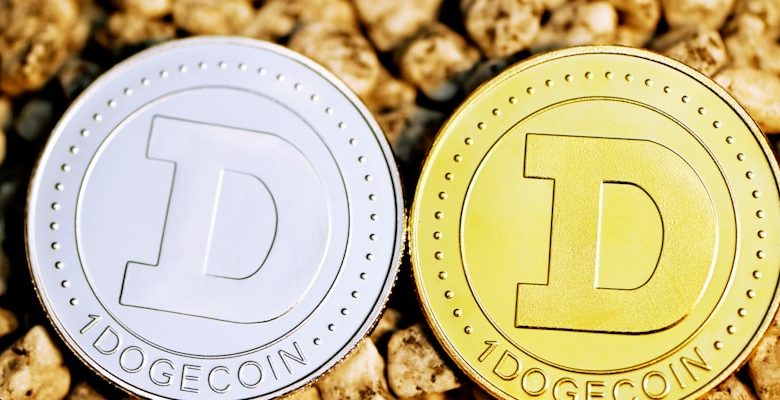The Future of Decentralized Derivatives in DeFi

- Understanding Decentralized Derivatives in DeFi
- The Rise of DeFi Derivatives Platforms
- Challenges and Opportunities for Decentralized Derivatives
- The Role of Smart Contracts in Decentralized Derivatives
- Regulatory Considerations for DeFi Derivatives
- Innovations Driving the Future of Decentralized Derivatives
Understanding Decentralized Derivatives in DeFi
Decentralized derivatives in DeFi refer to financial contracts that derive their value from an underlying asset or index, but are traded on decentralized platforms rather than traditional financial institutions. These derivatives allow users to speculate on the future price movements of assets without actually owning them, offering opportunities for hedging, arbitrage, and trading.
One of the key benefits of decentralized derivatives in DeFi is the elimination of intermediaries, such as brokers or clearinghouses, which reduces counterparty risk and lowers transaction costs. Additionally, these derivatives are typically governed by smart contracts, which are self-executing agreements with the terms of the contract directly written into code.
Understanding how decentralized derivatives work in DeFi requires a basic understanding of how smart contracts function. Smart contracts are automated scripts that run on blockchain networks and can execute specific actions when predetermined conditions are met. In the case of decentralized derivatives, smart contracts facilitate the trading of derivative contracts without the need for a central authority.
The Rise of DeFi Derivatives Platforms
Decentralized Finance (DeFi) derivatives platforms have been gaining popularity in the cryptocurrency space. These platforms offer users the ability to trade a wide range of derivative products, such as options, futures, and swaps, without the need for a centralized authority. As a result, DeFi derivatives platforms provide users with greater flexibility, transparency, and control over their financial assets.
One of the key drivers behind the rise of DeFi derivatives platforms is the growing demand for decentralized financial products. Users are increasingly looking for alternatives to traditional financial services that are more transparent and secure. DeFi derivatives platforms offer a decentralized alternative to traditional derivatives markets, allowing users to trade directly with each other without the need for intermediaries.
Another factor contributing to the growth of DeFi derivatives platforms is the increasing interest in decentralized exchanges (DEXs). DEXs have become popular among cryptocurrency users due to their ability to provide a non-custodial trading experience. By integrating derivatives trading functionality into DEXs, DeFi derivatives platforms are able to tap into this growing user base and offer a more comprehensive range of financial products.
Challenges and Opportunities for Decentralized Derivatives
Decentralized derivatives in DeFi present both challenges and opportunities for the future of finance. As this technology continues to evolve, it is important to consider the various factors that can impact its growth and adoption.
One of the main challenges facing decentralized derivatives is regulatory uncertainty. As governments around the world grapple with how to regulate DeFi platforms, there is a risk that new regulations could stifle innovation in this space. It is crucial for developers and users to stay informed about regulatory developments and work towards compliance to ensure the long-term sustainability of decentralized derivatives.
On the other hand, decentralized derivatives offer a range of opportunities for users and investors. These platforms provide greater accessibility and transparency compared to traditional financial systems, allowing users to trade derivatives without relying on intermediaries. This can lead to lower fees, faster transactions, and increased financial inclusion for individuals who may not have access to traditional banking services.
Additionally, decentralized derivatives open up new possibilities for creating innovative financial products and services. Smart contracts can be used to automate the execution of derivative contracts, reducing the risk of fraud and errors. This can help to build trust among users and attract more participants to the decentralized derivatives market.
In conclusion, while there are challenges to overcome, the opportunities presented by decentralized derivatives in DeFi are significant. By addressing regulatory concerns, leveraging the benefits of decentralization, and embracing innovation, the future of decentralized derivatives looks promising for the financial industry as a whole.
The Role of Smart Contracts in Decentralized Derivatives
In the realm of decentralized derivatives in DeFi, smart contracts play a pivotal role in facilitating the execution of agreements without the need for intermediaries. Smart contracts are self-executing contracts with the terms of the agreement directly written into code. This eliminates the need for trust between parties as the contract enforces the terms automatically.
Through the use of smart contracts, decentralized derivatives platforms can offer a wide range of financial products, including options, futures, and swaps. These contracts are executed on the blockchain, ensuring transparency and immutability. This provides users with a high level of security and trust in the system.
One of the key benefits of using smart contracts in decentralized derivatives is the automation of processes. This reduces the risk of human error and eliminates the need for costly intermediaries. Additionally, smart contracts enable the creation of complex derivatives products that can be customized to meet the specific needs of users.
Furthermore, smart contracts allow for the seamless integration of decentralized derivatives platforms with other DeFi applications. This interoperability enhances the overall efficiency and usability of the ecosystem, creating a more seamless experience for users.
In conclusion, smart contracts are the backbone of decentralized derivatives in DeFi, enabling the creation of innovative financial products in a secure and efficient manner. Their role in automating processes, ensuring transparency, and fostering interoperability makes them essential components of the future of decentralized finance.
Regulatory Considerations for DeFi Derivatives
When considering the future of decentralized derivatives in DeFi, it is crucial to take into account the regulatory considerations that come into play. The regulatory landscape surrounding DeFi derivatives is still evolving, and there are several key factors to keep in mind.
- One of the main challenges facing DeFi derivatives is the lack of clear regulatory guidance. Regulators around the world are still grappling with how to classify and regulate these financial products, which can lead to uncertainty for market participants.
- Another important consideration is the potential for regulatory crackdowns on DeFi platforms that offer derivatives trading. As regulators become more aware of the risks associated with these products, they may take steps to restrict or even ban their use in certain jurisdictions.
- Compliance with anti-money laundering (AML) and know your customer (KYC) regulations is also a key concern for DeFi derivatives platforms. Ensuring that these platforms have robust AML and KYC procedures in place is essential to prevent illicit activities such as money laundering and terrorist financing.
- Furthermore, the decentralized nature of DeFi derivatives can make it challenging for regulators to enforce compliance with existing financial regulations. This can create a grey area where platforms may operate outside of traditional regulatory frameworks, leading to potential legal risks for users.
In conclusion, while the future of decentralized derivatives in DeFi holds great potential for innovation and growth, it is important to proceed with caution and consider the regulatory implications carefully. By staying informed about the evolving regulatory landscape and taking proactive steps to ensure compliance, DeFi derivatives platforms can navigate these challenges and continue to thrive in the decentralized finance ecosystem.
Innovations Driving the Future of Decentralized Derivatives
Several key innovations are propelling the future of decentralized derivatives in the DeFi sector. These advancements are reshaping the landscape of financial instruments and creating new opportunities for investors and traders alike.
- One of the most significant innovations driving this evolution is the development of automated market makers (AMMs). These platforms utilize smart contracts to enable users to trade derivatives without the need for traditional intermediaries.
- Another crucial innovation is the rise of decentralized oracle networks. These networks provide reliable and accurate price feeds for various assets, ensuring the integrity of derivative contracts.
- Smart contract technology is also playing a vital role in the advancement of decentralized derivatives. By automating the execution and settlement of contracts, smart contracts enhance efficiency and reduce the risk of manipulation.
- Cross-chain compatibility is another key innovation that is expanding the reach of decentralized derivatives. By enabling users to trade derivatives across different blockchains, this technology opens up new possibilities for diversification and risk management.
These innovations are driving the future of decentralized derivatives in DeFi by increasing accessibility, security, and efficiency. As the DeFi ecosystem continues to evolve, these advancements will play a crucial role in shaping the future of financial markets.


